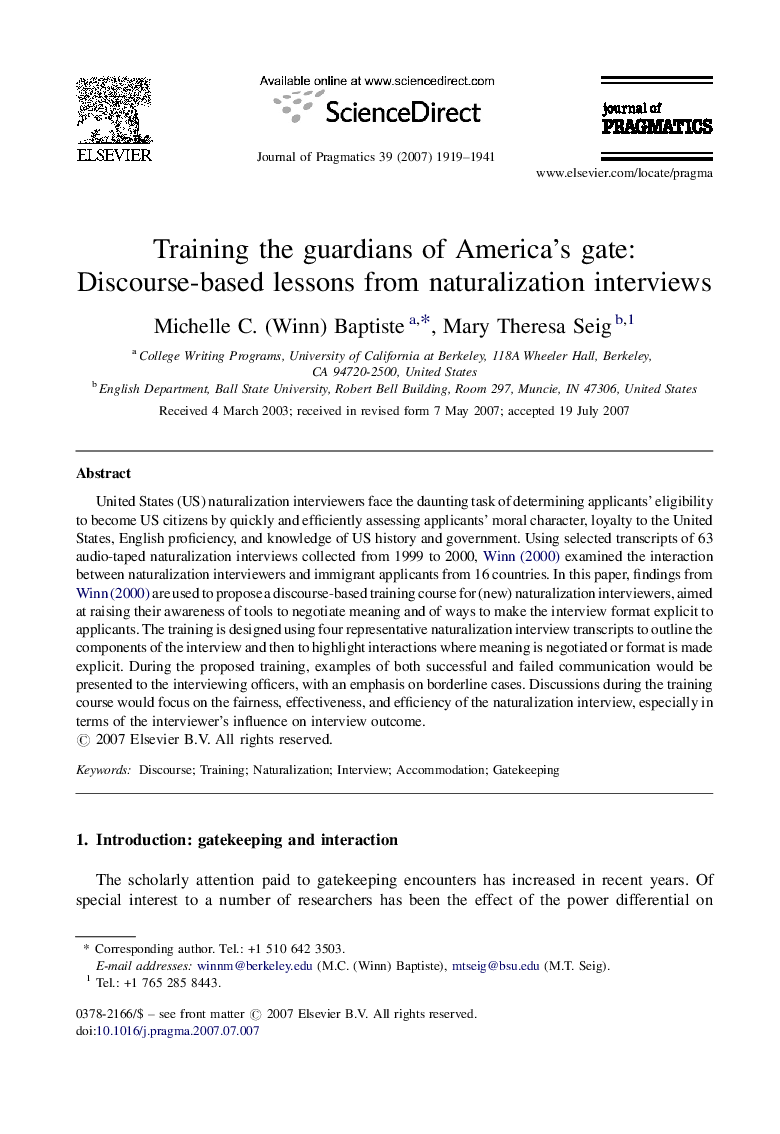| کد مقاله | کد نشریه | سال انتشار | مقاله انگلیسی | نسخه تمام متن |
|---|---|---|---|---|
| 934120 | 923395 | 2007 | 23 صفحه PDF | دانلود رایگان |

United States (US) naturalization interviewers face the daunting task of determining applicants’ eligibility to become US citizens by quickly and efficiently assessing applicants’ moral character, loyalty to the United States, English proficiency, and knowledge of US history and government. Using selected transcripts of 63 audio-taped naturalization interviews collected from 1999 to 2000, Winn (2000), examined the interaction between naturalization interviewers and immigrant applicants from 16 countries. In this paper, findings from Winn (2000) are used to propose a discourse-based training course for (new) naturalization interviewers, aimed at raising their awareness of tools to negotiate meaning and of ways to make the interview format explicit to applicants. The training is designed using four representative naturalization interview transcripts to outline the components of the interview and then to highlight interactions where meaning is negotiated or format is made explicit. During the proposed training, examples of both successful and failed communication would be presented to the interviewing officers, with an emphasis on borderline cases. Discussions during the training course would focus on the fairness, effectiveness, and efficiency of the naturalization interview, especially in terms of the interviewer's influence on interview outcome.
Journal: Journal of Pragmatics - Volume 39, Issue 11, November 2007, Pages 1919-1941